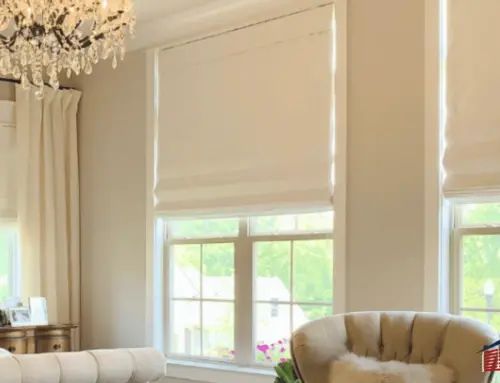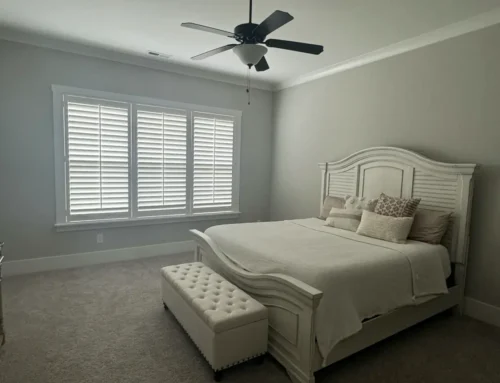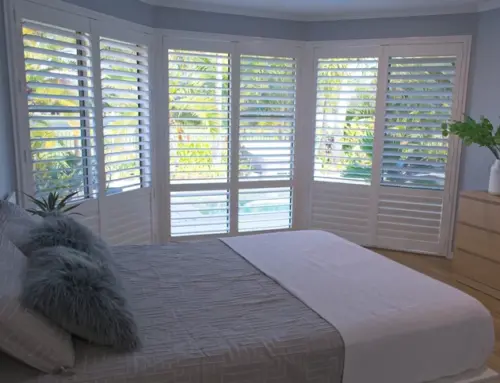Your daily routines might already support your health, but did you know your window treatments can play a key role in improving your sleep? Blinds do more than enhance the look of a room; they directly influence your exposure to natural light, which is crucial for regulating your circadian rhythm. This internal clock controls when you feel awake and when it’s time to wind down, and maintaining its balance is vital for restful sleep and overall well-being.
By choosing blinds that offer precise light control, you can sync your living environment with the natural cycles of daylight and darkness, creating a space that promotes better rest and revitalized mornings. In this guide, we’ll explore how the right blinds can help you establish healthy sleep patterns while supporting your body’s natural rhythms. Let’s uncover the simple yet effective ways to transform your space into a sleep-friendly haven.
How do blinds affect circadian rhythms in the body?
Blinds can significantly influence the body’s circadian rhythms, which govern sleep-wake cycles and overall health. Here’s how blinds affect circadian rhythms:
- Regulate Light Exposure: Light is the primary signal regulating circadian rhythm. Blinds help control the amount of light entering the bedroom, preventing disruptive light from interfering with your sleep cycle. Exposure to bright light at night can delay melatonin production, the hormone responsible for sleep, making it harder to fall asleep.
- Block Out External Light: Blinds can block out external light, such as streetlights or early morning sunlight, that may cause premature wake-ups or disrupt deep sleep. This ensures a dark environment conducive to restful sleep and helps maintain a regular sleep pattern.
- Promote Natural Daylight: During the day, blinds can be adjusted to allow natural sunlight into the room. Natural light exposure, especially in the morning, helps to reset the body’s internal clock, making it easier to wake up, stay alert, and feel energized throughout the day.
- Help Maintain Consistency: A consistent environment, controlled by blinds, can help reinforce the body’s natural rhythms, encouraging a stable and regular sleep schedule, which is crucial for overall health.
Blinds effectively regulate light exposure, supporting the body’s natural circadian rhythms and improving sleep quality.
Can the right blinds improve sleep quality?
The right blinds can significantly improve sleep quality by regulating light exposure and creating an optimal sleep environment. Here’s how the right blinds can enhance sleep:
- Blocking Out Disruptive Light: Blinds, especially blackout or room-darkening varieties, can block out unwanted light from streetlights, headlights, or early morning sunlight. This helps create a dark, peaceful environment, allowing for deeper, uninterrupted sleep.
- Supporting the Circadian Rhythm: Light exposure plays a key role in regulating the circadian rhythm, the body’s internal sleep-wake cycle. By preventing light from entering the room during sleep hours, blinds help the body’s natural clock stay aligned, promoting better sleep patterns.
- Reducing Sleep Disruptions: External light sources can cause premature wake-ups or disrupt the body’s ability to enter deep sleep stages. Properly adjusted blinds help eliminate these disruptions, allowing for a more restful and rejuvenating night’s sleep.
- Maintaining Temperature Control: Certain blinds, like thermal or insulated versions, can also help regulate room temperature, creating a comfortable sleep environment. Both excessive heat and cold can interfere with sleep quality, so controlling the room’s temperature with the right blinds is essential.
The right blinds contribute to better sleep quality by creating a dark, comfortable, consistent sleep environment that supports the body’s natural rhythms.
What role do blinds play in regulating natural light for better sleep?
Blinds play a crucial role in regulating natural light, which promotes better sleep by influencing the body’s internal clock, or circadian rhythm. Here’s how blinds help with this process:
- Controlling Morning Light Exposure: Blinds can be adjusted to control how much morning light enters the room. Exposure to bright light early in the morning helps signal to the brain that it’s time to wake up, which in turn helps reinforce a healthy sleep-wake cycle. Blinds allow you to let in natural light when needed, enhancing alertness and energy throughout the day.
- Preventing Disruptive Nighttime Light: Blinds help block external light sources like street lights or headlights, which can disrupt sleep by preventing the body from entering deeper stages of sleep. By creating a dark environment, blinds contribute to the production of melatonin, the hormone that induces sleep.
- Promoting Consistent Sleep Patterns: Proper light regulation, especially in the morning and evening, can help the body maintain a consistent sleep schedule. Blinds can allow sunlight during the day and block it out at night, helping reinforce a natural rhythm that improves sleep quality.
- Enhancing Sleep Environment: Blinds also help maintain a comfortable room temperature by controlling sunlight, which can make the room too hot or bright. This creates an optimal sleeping environment conducive to restful sleep.
Blinds are essential tools for regulating natural light, which is significant in promoting healthier and more consistent sleep patterns.
How can blinds help maintain a healthy sleep-wake cycle?
Blinds can play a key role in maintaining a healthy sleep-wake cycle, also known as the circadian rhythm, by regulating light exposure in the bedroom. Here’s how:
- Blocking Light at Night: Light exposure can interfere with the body’s production of melatonin, the hormone responsible for sleep. Blinds, particularly blackout blinds, can block out external light sources like street lights or headlights, creating a dark environment that promotes melatonin production and encourages deeper sleep.
- Allowing Natural Morning Light: Natural light in the morning helps signal to the brain that it’s time to wake up, helping to reset the body’s internal clock. Blinds can be adjusted to gradually let in sunlight, aiding in the transition from sleep to wakefulness and enhancing alertness throughout the day.
- Regulating Daylight Exposure: Consistent exposure to natural light during the day and darkness at night helps maintain a stable circadian rhythm. By controlling the amount of light entering the room, blinds help align the sleep-wake cycle, improving the timing of sleep and overall sleep quality.
- Improving Sleep Environment: Blinds also regulate the room’s temperature by blocking excessive heat or cold from sunlight. A comfortable, controlled sleep environment helps the body relax and maintain a healthy sleep pattern.
Blinds contribute to a consistent sleep-wake cycle by balancing light exposure, helping the body’s natural rhythms stay in sync, and promoting better sleep quality.
Optimize Circadian Rhythm with Blinds!
Enhance your sleep quality and optimize your circadian rhythm with The Blind Man! Our expertly designed blinds help regulate light exposure, creating the perfect environment for better sleep patterns. Our blinds support your body’s natural sleep-wake cycle by blocking disruptive nighttime and natural morning light.
Whether you need blackout blinds for a darker room or light-filtering options to regulate daylight, we have the right solution. Improve your rest, feel more energized, and wake up refreshed. Contact The Blind Man today to discover how our blinds can transform your sleep!






